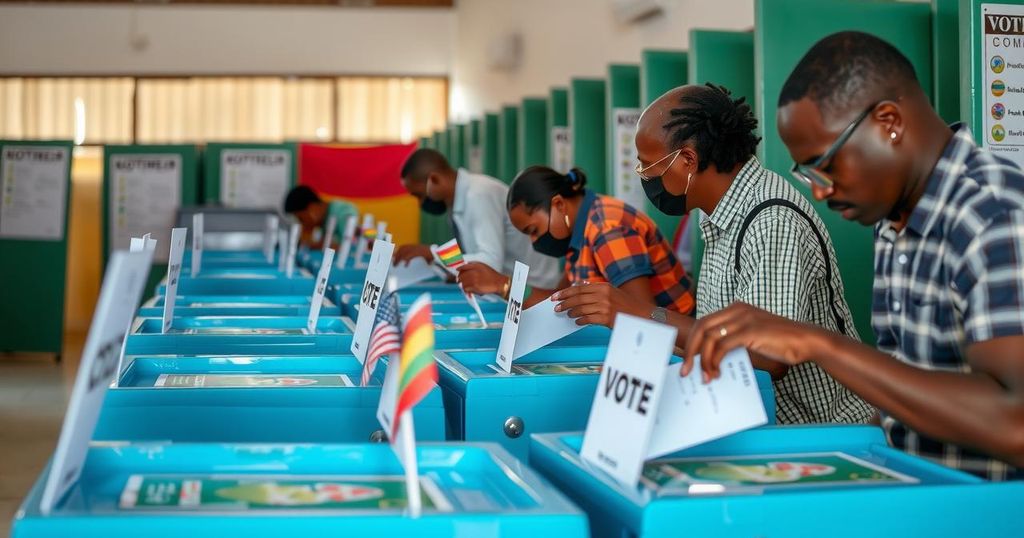Ghana Holds General Elections Amid Economic Crisis: A Test for Democracy

Ghana held general elections on December 7, 2024, amidst a severe economic crisis. With 18.7 million registered voters, the elections are critical for the nation’s democracy, despite limited hope for change from the key candidates. Ghana’s historical position as a democratic leader in West Africa is under threat due to rising inflation and unemployment.
On December 7, 2024, Ghana conducted its general elections, marking a crucial moment for democracy in a region plagued by extremist violence and governmental instability. Approximately 18.7 million citizens were registered to participate in the elections, which involved both presidential and legislative votes. However, the two primary candidates have been criticized for failing to present viable solutions to the nation’s pressing issues. Ghana, once hailed as a beacon of democratic governance in West Africa, is currently grappling with a significant economic crisis that has seen inflation soar and unemployment rise.
Ghana has historically been recognized as a model for democratic governance in West Africa, having successfully transitioned power through elections. Nevertheless, recent developments have posed challenges, undermining its reputation. The nation is facing dire economic hardships, characterized by soaring inflation rates and widespread joblessness, leading to disillusionment among the electorate. This electoral event is particularly significant as it may reflect the public’s response to these challenges and their trust in the democratic process.
The recent elections in Ghana represent a critical juncture for the country’s democracy, highlighting the contrast between its previous status as a democratic exemplar and its current struggles. With a registered voter base of approximately 18.7 million, citizens are confronting the challenges of economic instability while electing new representatives who may not offer significant changes. The outcome of these elections is crucial, as it may indicate the resilience or fragility of democracy in a region facing continuous threats from extremism and political unrest.
Original Source: abcnews.go.com








